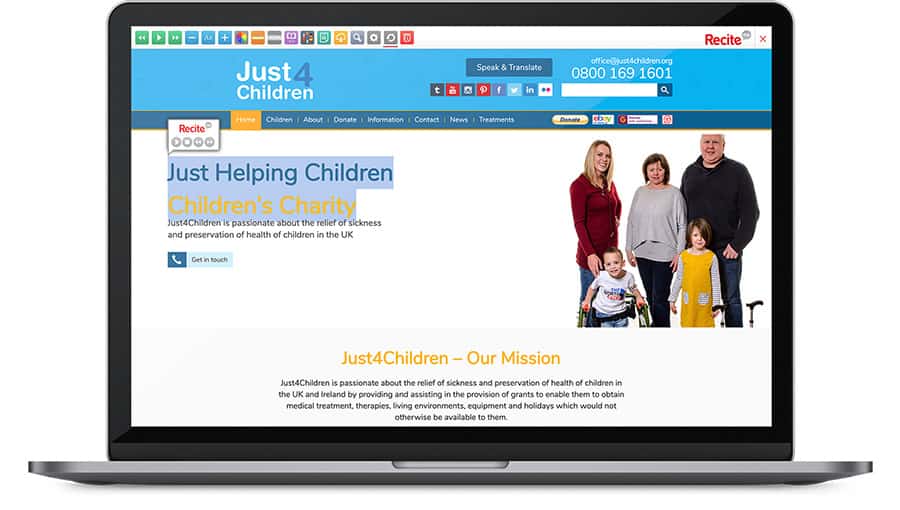Children’s charity incorporates assistive technology with new web accessibility software to promote inclusion online

National children’s charity Just4Children has added website accessibility software Recite Me to its website to help everyone use the website barrier-free and promote inclusion online, with helpful tools such as speech to text functionality and reading aids.
Just4Children provides support for families to help their children with disabilities and sickness, and the organisation is now breaking down barriers online with the recent introduction of Recite Me to its website.
The Recite Me assistive toolbar is a cloud-based web accessibility tool that allows website visitors to customise the Just4Children website in a way that works best for them.
It supports people with a wide range of disabilities, learning difficulties and people who don’t speak English as their first language, making it easier for everyone to access charity news, support and information easily, and donate hassle-free.
The Recite Me assistive toolbar offers a unique range of accessibility and language features including text to speech functionality, zoom and page masking, an interactive dictionary, fully customisable styling features, and reading aids.
It also has a translation tool with over 100 languages, including 35 text to speech voices, plus a range of other features.
Implementing this technology has allowed Just4Children to support more people to use its website without any barriers and deliver a more inclusive experience online.
Jeremy Marris, CEO of Just4Children, said: “Just4Children is committed to providing a website that is accessible to the widest possible audience.
“Recite Me provides a range of accessibility options on our website to allow everyone to read and understand our content in a way that works best for them. Recite Me was easy to implement and customised to suit our branding.”
To mark Global Accessibility Awareness Day (GAAD) last year, Hilary Stephenson, Managing Director at user experience agency Sigma, shared her top tips for inclusive web design and discussed the importance of asking for user feedback regularly to improve the website experience for everyone.
She also said that including features such as adjustable text size, optional visual effects, close-captioned or signed videos and links in which the clickable area is larger than the surrounding text are good ways to create an inclusive website experience.

